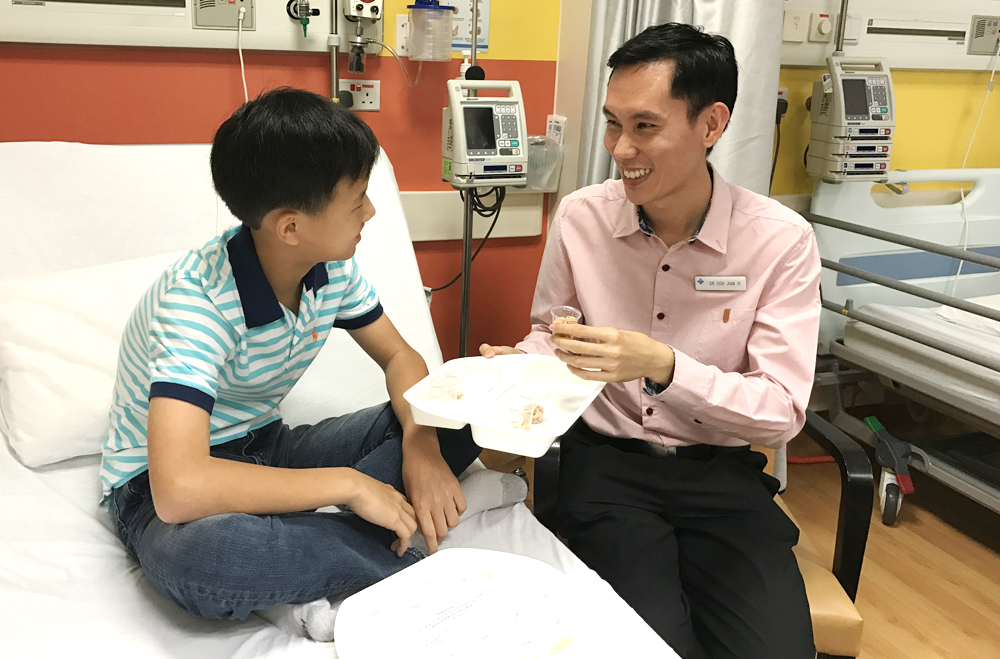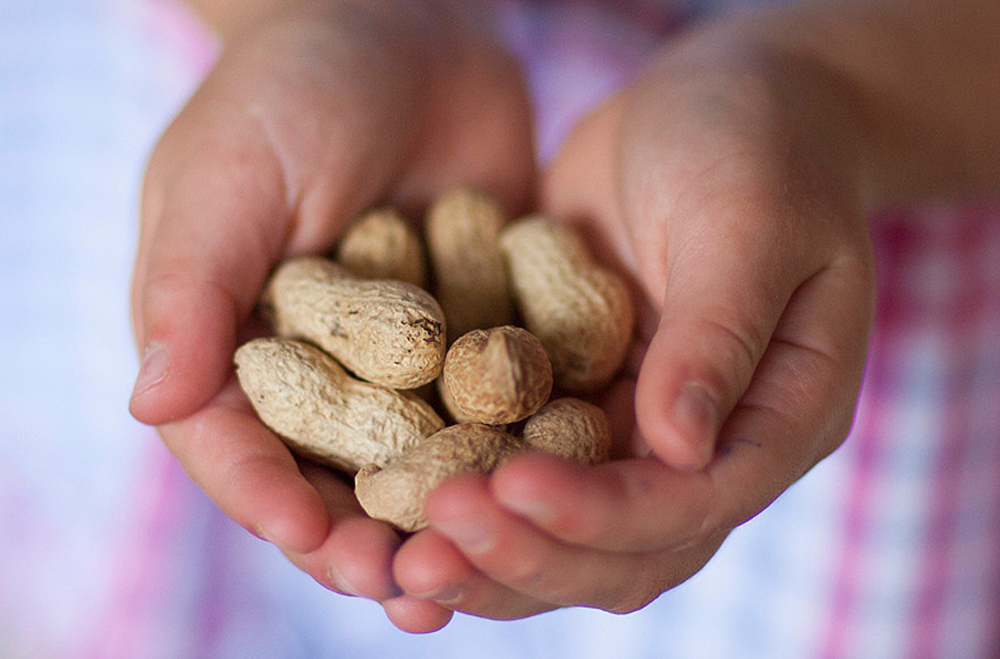The days of parents having to stringently watch over their children and ensure that they avoid food they are allergic to may be over, thanks to a new clinical treatment available at the National University Hospital (NUH).
Spearheaded by Dr Soh Jian Yi, a consultant at NUH’s division of paediatric allergy, immunology and rheumatology, the Food Oral Immunotherapy (FOI) programme uses allergen immunotherapy, which is said to help the body’s immune system to tolerate increasing amounts of allergens.
Simply put, throughout the course of the programme, children who are allergic to a specific food will be able to build up a tolerance towards it. At the end, the child should be able to consume these foods (up to a reasonable amount) without severe reactions.
To date, the programme (which was started in August 2015) has successfully treated five children who have shown allergic reactions to peanuts, with another 14 still undergoing the programme for peanut allergies and one child for milk allergies. The full programme takes six to 12 months to complete, according to Dr Soh and the hospital will be rolling out the FOI programme for tree nuts and eggs within the first half of 2017. NUH is also carrying out research to cater to children who have shellfish allergies.
Who is the programme for?
At the moment, the programme is available for children ages five to 16. Children who are younger are not recommended for the FOI programme and when they are below five, they have a chance of outgrowing their allergies. They would also be less able to express any discomfort they may have while doing the treatment.
What takes place during the programme?
For children who are allergic to peanuts, after an initial test to determine the amount of peanuts (measured in milligrams) a child can consume before having adverse reactions, a fixed amount of the allergen will be administered to the child, who will then be observed for two hours to ensure that there are no adverse reactions. Parents will then be tasked to administer the same amount of the peanuts daily to their child. The amount of peanuts will be increased with each subsequent visit to the doctor, until the child is able to consume a good amount of peanuts without having any bad reactions to it.

Tng Shih Kai, who is one of the first few patients to successfully complete the programme, was unable to even patronise food stalls that sold food with nuts in it. Now the 13-year-old can consume ten peanuts, or one-and-a-half mini mars bars without any worries.
This is a relief for his parents who no longer need to pore through the menus for items with peanuts when they eat out or worry that he may accidentally consume peanuts while outside without them. Shih Kai will still have to consume about 10 peanuts twice a week to maintain his ability to consume peanuts without adverse reactions, but it’s not difficult for him to meet, especially since he has discovered the wonders of satay sauce.
Other than helping the child, parents are also relieved of the psychological burden of constantly being on the alert and checking labels and food that is consumed outside the home, shares Dr Soh.
The costs for the full treatment ranges from S$5,000 to S$9,000 (before subsidies), and patients and an accompanying family member will have to commit to going for treatment once a fortnight for a two hour duration.
If you would like to find out more about the Food Oral Immunotherapy programme or make an appointment for your child who has peanut or milk allergies, call +65 6772 2002 to make an appointment at the National University Hospital.



